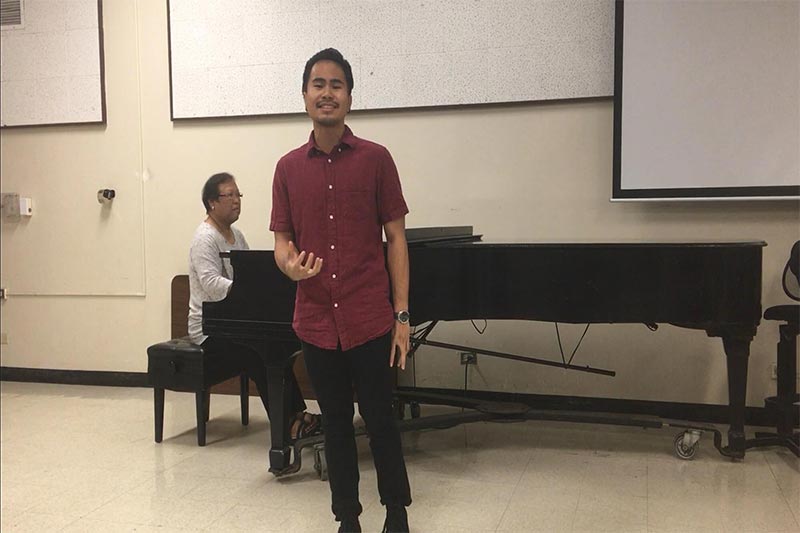Have you ever wondered if it was possible to teach yourself to sing? Well, the answer is yes it is, especially in the technological world that we live in today. There’s a lot of free resources online that teach lessons and give advice on how to develop your singing voice. We also have easy access to tools such as recording devices so we can play back our singing to hear ourselves. While it is possible, we still highly recommend that both aspiring and advanced singers work with a professional teacher, as teaching yourself to sing has its limitations. You might even be doing yourself harm if you only rely on self-teaching methods.
So that you are all aware of some of the risks that come with going the self-taught route for singing, we put together a list of the 5 Dangers of Teaching Yourself to Sing. Just keep in mind that teaching yourself to sing is still a viable option, however, it’s done best when you have a balance of learning on your own and working with someone else. We’ll go more in-depth about that later in this article.
Table of Contents
1. Forming Bad Habits
When teaching yourself to sing, there’s a tendency to develop bad habits as no one is there to tell you what is right and what is wrong. This is especially true for less experienced singers. Bad singing habits form when they are not addressed which is hard to do if you’re not aware of them in the first place. Of course, the longer you maintain these habits, the harder they become to break as you progress in singing. This is why it’s important to work with a reliable singing teacher as they can help you work on these habits early on. Even for advanced singers, meeting up with a teacher once and awhile can go a long way to making sure that you’re not forming even the smallest bad singing habits.
Working with a good teacher/coach can also help you form good singing habits. A subtle change in your singing and technique can make a very big difference.
Example from my Personal Experience
Before I ever took any lessons, I had the habit of singing with poor posture. I grew up singing while playing the guitar which contributed to this bad habit. Spending so much time hunched over while singing became second nature to me. Unawaringly, even if I sang without an instrument in hand, I would still have poor posture. For those who don’t know, singing with poor posture tends to collapse your chests and rib cages. This leads your head and neck to face more downwards, which results in your voice not fully resonating throughout your chest and body when you sing.
The worst part of this bad habit was that since I’ve been doing it for so long, singing with bad posture was natural for me. Once I start taking lessons and this issue was addressed, it was challenging for me to adjust. Singing with good posture was difficult as I was already comfortable with how I sang before. I knew I had to make changes when I learned about the limitations I was setting myself up for. I was able to eventually fix my posture, thanks to my teacher’s proper guidance. Ever since then, I’ve become more aware of this habit as I don’t want to go back to it.
2. Improper Usage of Vocal Techniques
A big issue that comes with trying to teach yourself to sing without any type of guidance from a teacher is using vocal techniques improperly. Nowadays there are many video lessons and guides for singing available to us for free online. We have access to so many different resources online that present us with good learning material. Because of this, people are less inclined to taking proper singing lessons with a teacher. This is where it can get dangerous, especially for the inexperienced singers who are still familiarizing themselves with their voice.
While you can find videos that will teach you important vocal techniques, you can only do so much on your own. Understanding the ideas of the singing techniques being taught in the videos is one thing, but applying them to actual singing is a whole different challenge. Using vocal technique improperly is not only limiting your singing abilities, but it’s also putting you at risk of damaging your vocals. This is why working with a good teacher or coach is so important. When learning new vocal techniques, a teacher can help guide you in the right direction. They can also explain techniques and concepts in a way that you can best understand, a personal touch that you won’t get from videos and online guides.
No matter what skill level, trust me, working on techniques with a teacher or coach is very important. When it comes to learning the fundamentals of singing, I have to stress it more. It is important to have a good foundation as you grow as a singer which is best done working with a professional teacher/coach. This will ensure that you will have more progress and success with your vocals in the future.
3. Not Understanding Your Own Limitations
Another issue that many singers, especially beginners might not be aware of is their own vocal limitations. Basically knowing when to keep going during a practice session or when to take a break. When teaching yourself to sing, its easy to get caught up with trying to progress your singing abilities as quickly as possible. You might find yourself rushing into different techniques even though you haven’t fully grasped the previous one you were working on. There’s also the possibility of pushing yourself too hard during your practice sessions.
Singing can be considered an “athletic” activity since it involves the usage of certain muscles. Just like in any athletic training, you need to develop stamina in using these muscles as well as learning how to not over fatigue or strain them.
In time, with proper training you will develop your control and strength of these muscles, helping you in your singing. However, if you’re not aware of your own limitations, it can result in you slowing down your progress or even causing damage to your vocals.
How a Teacher can Help
A good singing teacher or coach can help singers understand their limitations. Just like a sports coach, singers would have a proper training regiment in order to strengthen their singing abilities that would take place during lessons. Teachers would also be able to give good advice regarding a singer’s limitations so they are aware of them. This will be good for when they go home to practice the material for the next time they meet for lessons.
From My Personal Experience
When I was taking singing lessons back in university, one of my classes required an end of semester performance of a song of our choosing. During my first year of lessons, I was naive about my own limitations. I wanted to sing a song that was challenging so I could have a good first impression on the other singing students and the music department. However, when I presented my request for the song I chose at the time, my singing teacher refused. He told me that I wasn’t ready to perform this song.
Of course, I was frustrated, but after months of lessons with him, I came to realize that I was overconfident in my own singing abilities. We even tried to sing a challenging portion of the song I initially wanted to sing and found myself having a hard time. There were transitions from low to high notes that I couldn’t hit at the time. It was even challenging to maintain my breath throughout the song. This truly was the time I realized my own limitations. My teacher was only looking out for me and prioritizing my vocal health and success.
Since then, I’ve become more aware of what my voice is capable of. I understand my own limitations as a singer, while at the same time can work on improving my skills. I’ve definitely come a long way since my first day of lessons compared to when I was trying to teach myself how to sing on my own.
4. Not Developing Your Own Unique Sound
It’s important for singers to develop their own unique voice/sound. This distinguishes them from the rest and can be one of the biggest strengths a singer can have. However, when teaching yourself to sing, it can be difficult to develop your own unique sound. A lot of aspiring singers at the beginning of their journey take a lot of inspiration from their favorite artists. Of course, this can inspire them into wanting to learn how to sing, but it can also influence how they develop their voices. While it’s good to be inspired by your favorite artists, it shouldn’t be your end goal to sound exactly like them.
This is why it can be tough to rely only on self-teaching methods. You might not be developing your own unique sound when you’re teaching yourself to sing. Instead, you’re improving on sounding like your favorite singers. When taking lessons with a professional singing teacher/coach, it’s good to let them know who your influences are. This gives them a better idea of what to expect to hear from your voice. A good teacher will let you know you’re starting to sound too similar to your favorite artist. “I don’t want to hear Adele, I want to hear your voice,” my teacher told one of his students during a group class.
Learning everything on your own makes you more susceptible to just being good at sounding like someone else. With proper guidance, you can have your voice influenced by your favorite artists, but also developing it to sound unique.
5. Damaging Your Voice
Everything we’ve discussed so far leads up to the biggest danger that can come with learning how to sing on your own. Without proper training, it is very possible to damage your vocals. This can result from bad vocal habits, improper singing technique, and pushing too much over your limitations. In the worst case scenario, you could damage your voice to a point where it can’t fully recover. It’s reasons like this one that I can’t stress enough how important it is for any aspiring singers to work with a teacher, at least to develop a strong foundation.
Of course, for any serious singers, working with a teacher/coach is in your best interest. It’s good to ensure you’re constantly improving your abilities in a way that is safe for your voice.
Singing is a very technical skill that requires a lot of practice and control. You’re going to want to make sure to take good care of your voice. Unlike other instruments, you can’t just buy a new set of strings or a “new voice.” Also for those who have found themselves with a damaged voice, it’s possible for a vocal teacher/coach to help rehabilitate it back to good health.
A Balance of Being Self-Taught and Taking Lessons
To finish up our discussion, we want to talk about the ideal route to take as a singer. Teaching yourself how to sing isn’t entirely a bad thing to do. It can actually be good for your growth as a singer, becoming more familiar with your own voice. However, the best approach would be to have a good balance of self-taught methods and taking lessons with a teacher. This way, you get the best of both worlds.
Like we’ve already mentioned, there are so many free resources online for aspiring singers. These free videos and guides can give you a headstart on techniques and concepts. You can then bring what you already have learned from these resources to your lessons and begin working on them further with your teacher. Your teacher/coach is there to help you develop your skills as a singer. They can catch the mistakes, bad habits, and improper usage of techniques that you’re not aware of. Afterward, you can take what you learn from your lessons and practice them more effectively when you’re on your own.
A good balance is important in improving as a singer as both sides have its benefits. Just remember that it’s going to take hard work and patience regardless.
Final Thoughts
Well, there you have it, the 5 dangers you should keep in mind if you plan on teaching yourself to sing. Remember, we live in a completely different world nowadays. Learning something new can be as easy as clicking the play button on a YouTube video. But when it comes to singing, it’s always important to work with a teacher that can help build your foundation as a singer and guide you on a good path of learning. Even if you meet with your teacher less as you become more advanced, try to put some time in working with them to make sure you’re not doing anything that is detrimental to your voice. Keep up the hard work and best of luck on your singing journey.








Leave a Comment